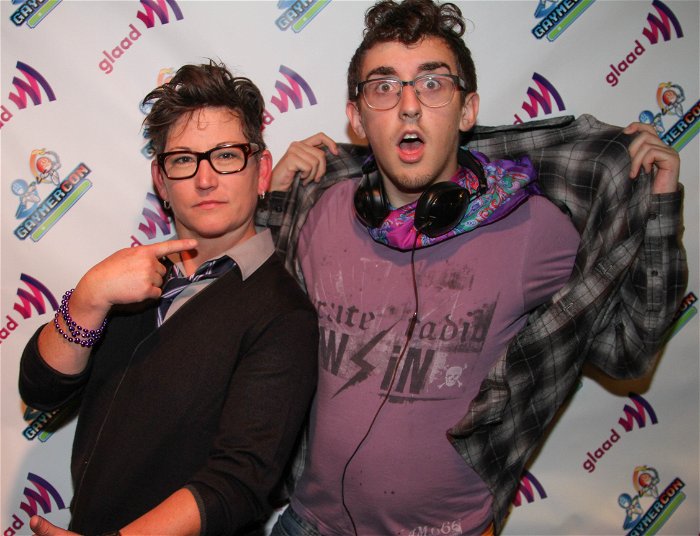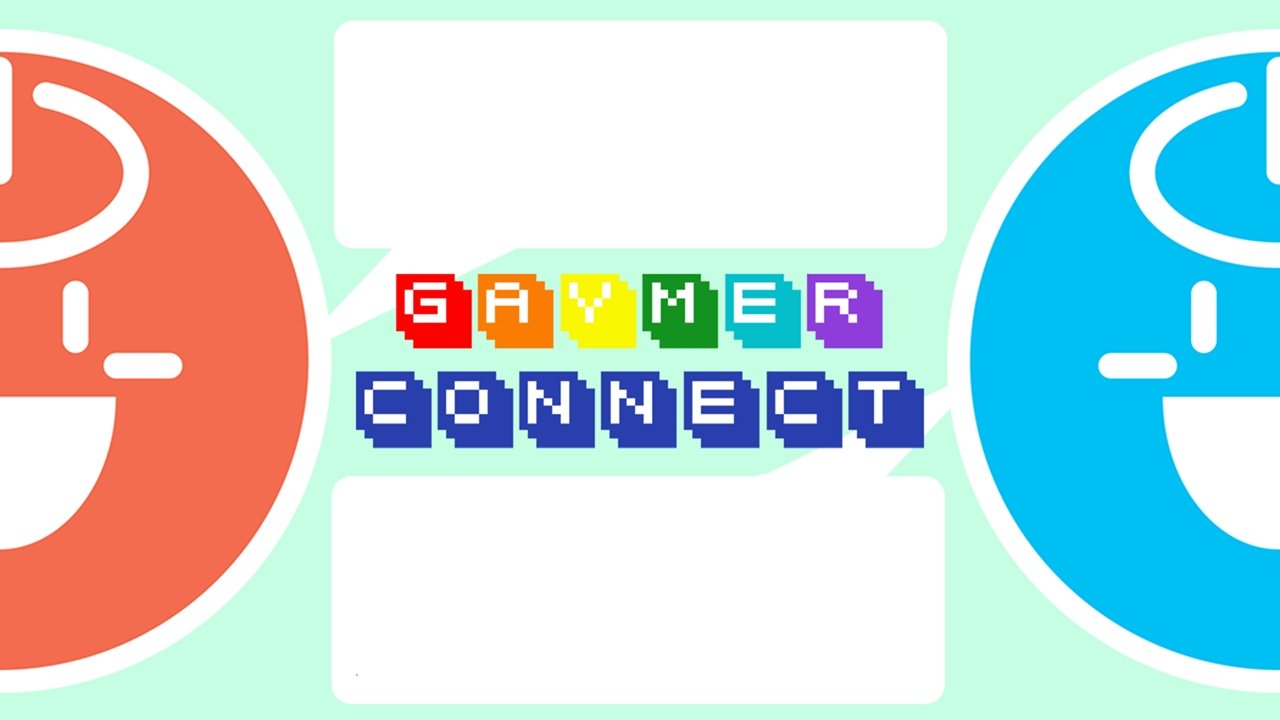With over $90,000 in donations from Kickstarter, Gaymer X will be the first gaming and technology convention focusing on LGBT geek culture.
Originally asking for $25,000 to put the con in motion, Gaymer X has now received backing from big companies like Microsoft, Electronic Arts and IGN. Gaymer X will have all the regular goings of a con with panels, exhibitors and celebrity and gaming guests but all with the focus on gay gamers. Despite their success, Gaymer X has received their fair share of negative feedback from the community and even the infamous Westboro Baptist Church.
So what are the plans for Gaymer X? We sat down with founder Matt Conn to find out.
Comics and Gaming Magazine: Explain to me what Gaymer Con is?
MC: Basically the idea behind Gaymer X is that we want to provide a convention for LGBT and their allied gamers to come together and chat about these kind of different ideas, and have different discussions about things that aren’t generally brought up in the mainstream gaming population. Like why are things so masochistic, why are things so homophobic, why are things so racist, things like that. Really the idea is to get these dialogues to the mainstream, as well as create a safe space for queer gamers to come together and have fun and meet one another.
CGM: And why is this important?
MC: It’s important because gaming is a larger industry then movies, and a larger industry then music in terms of money, so there’s a very large audience here that is been underserved. What’s important about that is all these young people, and anyone who’s playing games when there isn’t options and there isn’t the equal rights that’s afforded to them as there is in other media, it kind of gives the example that it’s okay to be masochistic, homophobic or racist. We want to provide a space where we’re furthering those dialogues, and that those things are not okay and we want to try and work to equality in gaming.
CGM: What were the circumstances for coming up for the idea?
MC: So, we had a group in San Francisco called the SFgaymers, and we started that group just out of the idea that we believe there was a group of people here that were both gay and geek, and wanted to find a space that they wouldn’t be ostracized from either being a geek and be ostracized from the gay community, or be gay and ostracized from the geek community. We provided a safe space to be who you were and come as you are. That group grew very quickly just through word of mouth, and we decided that we were going to make our own convention. The idea and the plan started out very small and we only planned to have a couple hundred people, and we knew we needed some kind of funds to make it happen on any sort of level that wasn’t completely amateur hour. So we decided to do the Kickstarter. But we really didn’t even know or expect to hit our goal, and little did we know that we would have so much support and there would be so many people not just in American but across the world, that really wanted something like this to happen and be a part of gaming culture.

CGM: So why use Kickstarter? What was the idea behind that?
MC: The main idea behind using Kickstarter was that we didn’t know what the actual demand was going to be for the convention. By doing it on Kickstarter we were able to kind of scale the demand and instead of like many other conventions in the past where you would have to have capital and money in the beginning and get a hotel and spend money trying to convince people to come, we did it the other way around where we wanted to see how many people even had interest in coming out to something like this. I think that the fact that we were able to raise over $90,000 for something that didn’t at the time have a location set, a guest of honour set and didn’t even really have a program set. It only had an idea and kind of a promise, and we were able to raise so much money just on the fact that people really felt very strongly that something like this needed to happen in the gaming world.
CGM: There must have been a point when you realized this was going to get very big very quickly
MC: Yeah. We hit our goal in four days of $25,000 and that was really very outstanding and humbling. Right around that time most Kickstarters once they hit their goals their funding begins to slow a little bit because now people know it’s going to happen. But right around that time the Westboro Baptist Church made a video about us, criticizing us and threatened to picket the convention, and that led to another surge of donations and growth and publicity. So thankfully because of that and other negative press that we got we were able to continue to grow and maintain momentum throughout the campaign.
CGM: There’s obviously a lot of positive support in terms of money, what were some of the negative things that happened?
MC: So Westboro Baptist Church made their video and that was very interesting, and obviously that was a very extreme take and one that people don’t take very seriously. But a lot of people have had other criticisms about the convention. The biggest criticism that we’ve seen and we try very hard to convince people that this isn’t an issue and part of that is going to be in the execution of the event. People are concerned that this is almost like a ghetto-isation of the gay gaming population, and that we’re taking our theoretical ball and we’re going home and we’re no longer apart of the mainstream public. That we’re saying nope you guys aren’t treating us right so we’re going to go have our own thing and that’s it, bye. And that is absolutely not the case. I don’t think there’s anything wrong with having two days out of the year where people can come together of common creed and meet one another. But the idea is that we can strengthen and discuss what are the issues and the things we want to deal with in the gaming population as a whole and bring that to the general public. I absolutely don’t think that gay gamers should only play with gay gamers, and that they should stop playing with other people I think that’s silly. But I do think that the idea of that Gaymer X is somehow providing a ghetto or something for gay gamers and that we should only go to traditional gaming conventions is a little silly and short sighted.
We really want it to be educational and thought provoking.
CGM:A bit about the festival, can you tell me what some of the key focuses will be?
MC: I think dialogue will be the biggest thing, one of the reason why it’s called Gaymer X is that we wanted it to be a little bit similar to TEDx, in that there would be a lot of panels where there are game developers who are prominent in the game industry talking about their experiences as a queer game developer or working with queer themes. We really want it to be educational and thought provoking. At the same time, we also want it to have multiple tracks so whether you want to be in the game developing world, or if you just want to come and learn more about the gaming world, or the LGBT gaming population, or if you just want to come and meet other LGBT gamers, we want to try and have different tracks, for if you’re just coming for fun, or if you’re coming for education, or if you’re coming for networking. So we’re going to try and position it in a way where it will be beneficial no matter what kind of side of the coin you fall on.
CGM: Did you have any trouble filling panel slots? Especially since you’re working with a smaller spectrum of available topics?
MC: Right now we actually have a panel picker on Gaymer Connect, and one of the cool things about Gaymer Connect is that as you use the panel picker you can up vote and down vote panels. When you up vote and down vote panels you gain XP, and the more that you up vote and down vote and use the website you gain XP and gain levels. So you’re kind of encouraged to participate, but we just launched that a couple weeks ago and we’re already had somewhere over 30-40 panels submitted in the last couple of weeks. So it really hasn’t been an issue. I was talking the other day to the head of PlayStation and of IGN, and we were talking to someone from Bioware and they’re all very excited. Some of them want to submit two panels. Honestly, it’s going to come down to trying to make sure that we don’t have to reject too many panels. Because it’s the first year, and there’s been so many LGBT topics that’s been happened in the gaming world in the last 25 years, and no one’s ever really talked about it I think there’s a lot people want to get it off their chest and talk about it. I would almost be, maybe, concerned for the number of panels for the upcoming years, but for this first year it’s going to be really hard to actually narrow them down to just two days worth of content.
CGM: Are there any panels that have you excited?
MC: Yes, right now we haven’t confirmed any specific panels. But some of the things that we’re very excited about are our guests of honour. Some of our guests of honour include, Zach Weiner the creator of SNBC(Saturday morning breakfast cereal) comics, he’s really exciting because he puts on one of the largest comics online with over 450,000 hits a day. And his comic strips regularly feature LGBT character and LGBT couples that aren’t the butt of the joke. They’re just there, when he needs a characters he just picks out random characters, he doesn’t discriminate in his comic works. He has a very diverse cast of characters, and their diversity isn’t a part of the joke, the diversity is just there. It’s a really accurate representation of what’s going on in America and overall what’s going on in the world.
Another popular person we’re excited to have as a guest of honour is Anna Anthropy, and she’s a really famous transgendered woman who is an indie game developer, who really has risen to prominence over the past couple of years. She’s someone that a lot of people have been looking to as a leader in the LGBT and trans gaming world because she’s someone that despite the fact of how xenophobic , homophobic and transphobic the gaming population can be at times, she still managed to fire her way through and get some really high critically acclaimed games out there.
CGM: What are your plans for the future?
MC: I mean it would be humorous of us to think beyond the first year because there’s so much riding on the first year in terms of is this going to be something people enjoy. Is this something people are going to think is still necessary after the first year? Is there is going to be a demand for more? It could very well be that people come to the convention and they love it but they go, you know, that is what it needed to be, and it helped sparked these conversations in the gaming community and now there’s no more need for this convention. If that were the case, I would be very happy if tomorrow we woke up and there was equality across the board in gaming. But really, I don’t know how people are going to react to the convention, I don’t know what the demand is going to be after the first year. If everything goes really well and there is a lot of demand we would love for this to continue. If we could go beyond just having one convention or just having it here in San Francisco, we would love to bring it to Tokyo or to Europe and take these ideas beyond just here in San Francisco where what we’re saying to some is preaching to the choir. But if we can bring it to the places that feature very prominent game developers who don’t really have the support for the queer population like we do here in San Francisco, it would be great to see how it’s received and if it could help bring some change about.



